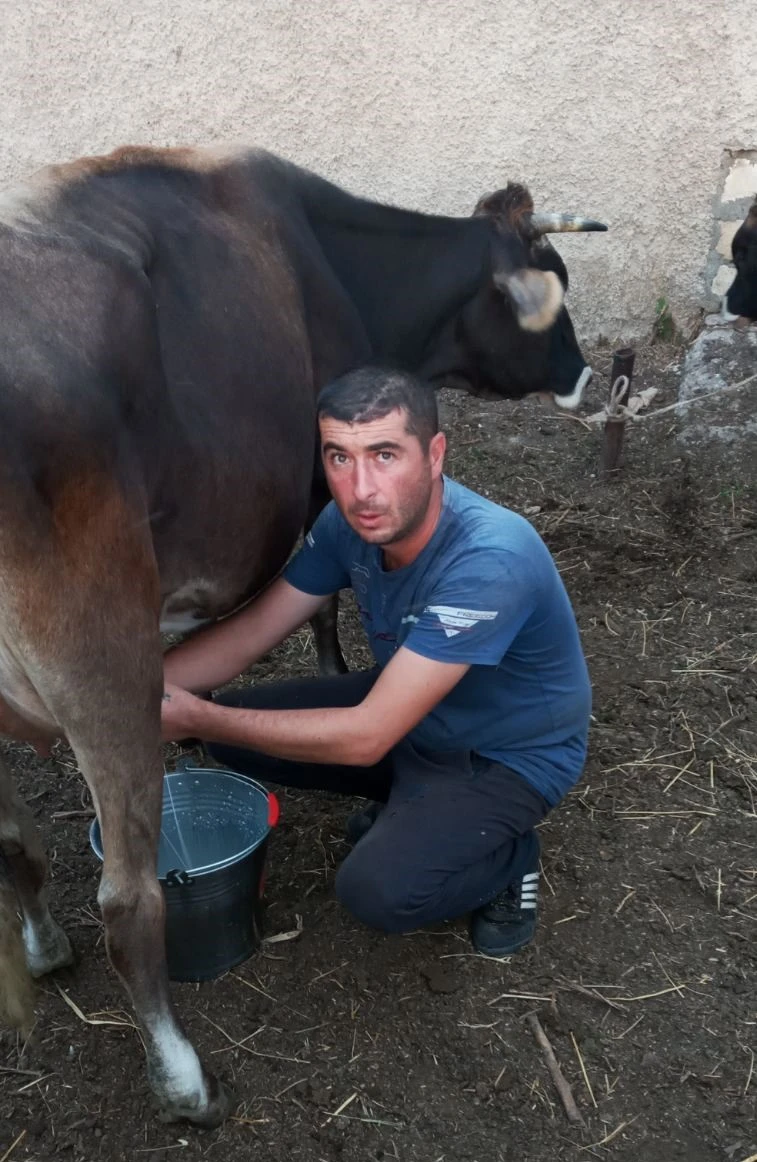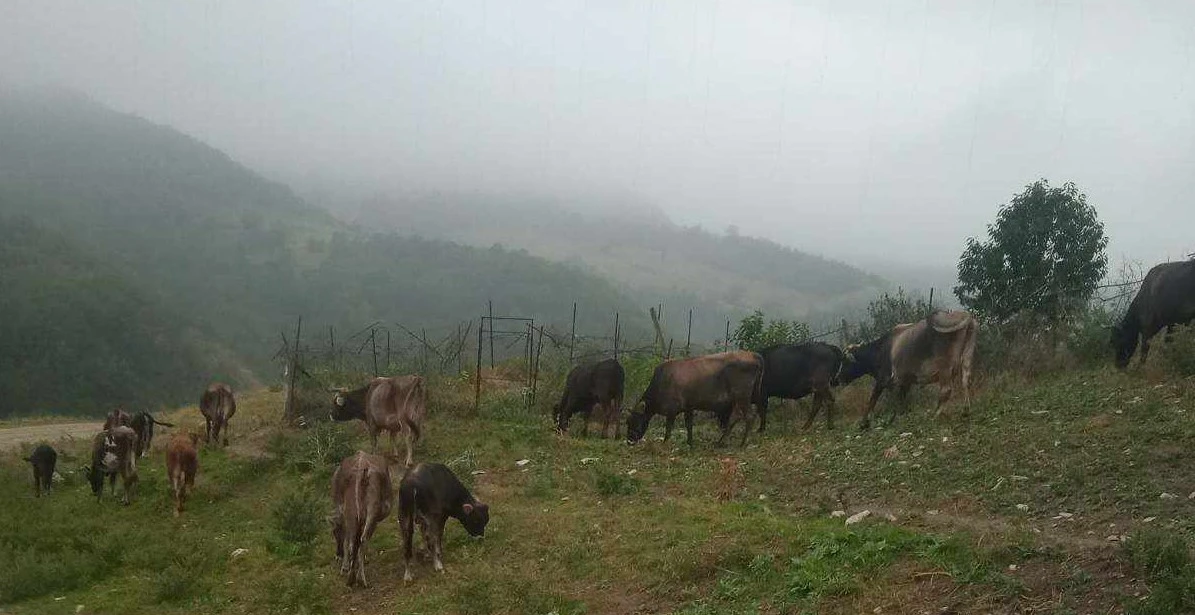Nearly 140 dairy cattle have been saved from slaughter in Artsakh in recent weeks as a result of a new initiative by the Tufenkian Foundation. This initiative is part of a wider program to bolster Artsakh’s food security, undertaken earlier in the year in response to Azerbaijan’s blockade.
This initiative was kicked off earlier this summer when it became apparent that, as a result of the dire economic circumstances created by the Azerbaijani blockade, some farmers were having to slaughter their family cow to sell for meat as a way to raise money. Since the blockade has made it impossible to replace these animals, Artsakh’s dairy production capacity was being put at risk.
Working together with Artsakh’s Agriculture Ministry and relying on Tufenkian’s own extensive knowledge of the area, the Foundation identified dairy farms that had sufficient feed, water, and barn space to take on additional animals, and then matched them up with families who were considering slaughtering their cows. However, because of the acute economic conditions, the dairy farmers were unable to secure working capital to purchase the at-risk cattle. Tufenkian quickly established a zero-interest loan program to enable these dairy farmers to purchase the at-risk animals to save them from slaughter. Prior to their transfer, each cow was examined by a veterinarian to ensure that the cows were healthy and to prevent the spread of disease.
“The milk produced by these cows will be able to supply hundreds of families with dairy products, providing them with a vital source of nutrition,” stated Greg Bedian, Director of the Tufenkian Foundation. “This initiative, together with our earlier distribution of free seeds to the farmers of Artsakh, contributes another important element to helping make Artsakh more self-sufficient.”
Unfortunately, due to fuel shortages resulting from the tightening of the blockade, it has been difficult for farmers to transport their milk to dairies for processing and packaging. This has resulted in severe shortages of milk, butter, and other dairy products in Stepanakert and other cities. Areg Mnatsakanyan, a program beneficiary from the Askeran region, has taken matters into his own hands.
“Because we can’t get the milk to the dairy, I am distributing the milk from my cows for free to 30 families that live nearby,” he stated. “I am very grateful to be part of this program and am happy that I can help my fellow villagers during this crisis.”
After the Aliev regime laid siege to Artsakh with its blockade, the Tufenkian Foundation began working closely with Artsakh’s Agriculture Ministry to seek out ways to enhance Artsakh’s food security. Partnering with the Armenian Tree Project and the Armenian Missionary Association of America, Tufenkian secured 90 metric tons of seed potatoes which were brought to Artsakh by the Russian peacekeepers’ aid convoys. These shipments were enough to provide seed potatoes free of charge to every farmer in the Martuni region of Artsakh.
Soon afterward, and in partnership with the Agriculture Ministry’s Village Support Fund, over 150 tons of buckwheat, lentil, pea, and other seeds, including seeds for animal feed such as alfalfa and esparcet, were distributed free of charge to farmers throughout Artsakh. Some of the crops resulting from these seed distributions have already begun to be harvested and are providing an essential source of nutrition for the populace.
“While we are somewhat gratified that our efforts are having a positive impact on the dire situation faced by the people of Artsakh, the international community must move beyond rhetoric and take the necessary steps to force the Aliev regime to abide by its obligations under international law and re-open the Lachin corridor,” concluded Bedian.
